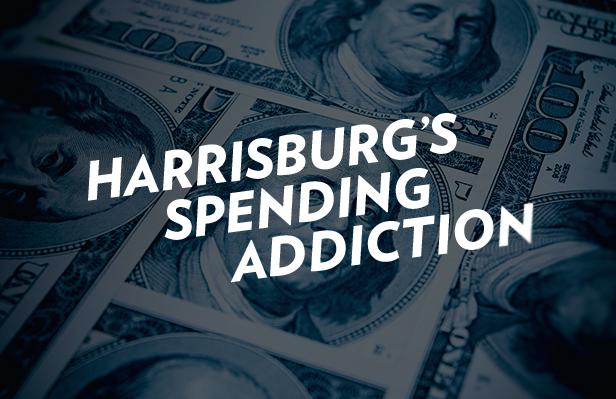Media

Lawmakers’ Choice: Take from Taxpayers or Rein in Reserves
The path to ending the state budget impasse is becoming increasingly clear. Two plans with competing visions are at the forefront of debate in Harrisburg.
The first option is a tax-and-borrow approach. The plan, which passed the Senate back in July, includes at least $570 million in new taxes and up to $1.3 billion in borrowing. The tax increases would be broad-based, hitting Pennsylvanians in the form of higher utility bills, cell phone bills and online purchases. Borrowing itself would place an additional burden on taxpayers, potentially requiring them to pay more than $2 billion once the interest and principal on the bond is paid off.
Tax hikes and more borrowing would come on the heels of a $650 million tax increase passed last year, along with higher insurance premiums, turnpike fees, liquor prices, and a tax burden that already ranks as one of the most onerous in the country.
The second option involves a plan that respects taxpayers and requires state government to use funds that have accumulated over several years. The proposal—known as the “Taxpayers’ Budget”—calls for the redirection of more than $1.2 billion from 41 shadow budget funds. It also includes nearly $1.2 billion in additional fund transfers, tax changes, and ad revenue.
The Wolf Administration has panned the plan, asserting the fund transfers would force cutbacks in various services. But as we made clear last week, lawmakers want to transfer surplus funds from reserve accounts that have grown over the past several years. Every single penny promised to agencies for the 2017-18 fiscal year remains in place. Additionally, even after the transfers, many funds will still have surplus funds in their individual accounts.
Yet, the bureaucracy in Harrisburg continues to send out dire warnings about the fund transfers without demonstrating how the transfers will immediately and irreparably harm services provided—many of which amount to special giveaways.
It's important to note the Taxpayers’ Budget calls for using approximately 13-14 percent of reserve funds to balance the budget. That means more than $8 billion would be available to pay for emergencies or contractual obligations.
Lawmakers also have the option of raising additional revenue through liquor privatization and gambling expansion.
What's the major takeaway? There are plenty of ways to balance the budget without raising taxes.